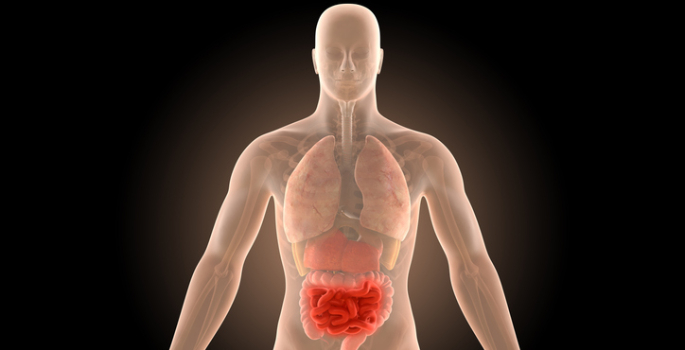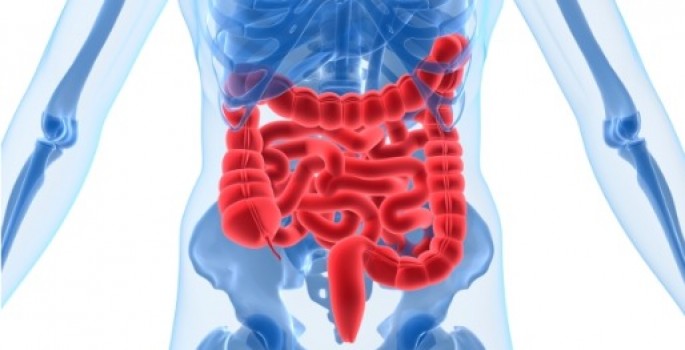Inflammatory Bowel Disease
-

VISE-affiliated researchers conduct phase 1 trial of novel magnetic endoscope for colonoscopies
The research team includes, left to right, Bruno Scaglioni, PhD; Keith Obstein MD, MPH; James Martin, PhD; Claire Landewee; Simone Calò, PhD; and Pietro Valdastri, PhD. (photo by Susan Urmy) by Jill Clendening A Vanderbilt Institute for Surgery and Engineering (VISE) research team is conducting the first phase 1 clinical trial of a magnetic, flexible... Read MoreOct 19, 2023
-

Vanderbilt researchers discover how gut inflammation leads to bone loss
Gastrointestinal inflammation, such as occurs in inflammatory bowel disease, triggers the expansion of a population of “bone-eating” cells, leading to bone loss. Read MoreAug 25, 2022
-

Probiotic protection
A probiotic factor given early in life to mice prevented intestinal inflammation in adulthood, providing a rationale for probiotic intervention in individuals at high risk of developing inflammatory bowel disease. Read MoreMar 4, 2021
-

Host-microbe interactions in the gut
Vanderbilt investigators demonstrated that intestinal cells promote beneficial microbe behavior — the findings support developing microbiota-based therapies for intestinal health. Read MoreAug 13, 2019
-

Intestinal immune cell interactions
Understanding the roles of various immune cells that reside in the gut lining could shed light on inflammatory bowel diseases. Read MoreJul 30, 2019
-

Novel insights on “leaky” gut
Disruption of the integrity of the intestinal lining or epithelium contributes to a “leaky” gut and is a common feature of patients with inflammatory bowel disease. Yash Choksi, Christopher Williams and colleagues found that low levels of a certain protein exacerbated the condition. Read MoreJul 20, 2018
-

Lineage tracing in the gut
Vanderbilt investigators have developed an algorithm to classify cell types from experimental data, making it possible to understand how organs develop. Read MoreNov 30, 2017
-

Detecting inflammatory bowel disease during a colonoscopy
Vanderbilt researchers have developed a new optical sensor that can accurately detect different types of inflammatory bowel disease and can be easily integrated into routine colonoscopy exams. Read MoreFeb 1, 2017
-

EGF receptor found to regulate macrophage inflammation in gut
Researchers at Vanderbilt University School of Medicine have uncovered a link between epidermal growth factor receptor (EGFR) signaling and the inflammatory response to bacterial infection in the gastrointestinal tract. Read MoreOct 13, 2016
-

Study explores protein’s role in inflammation-associated cancer
An antioxidant protein may protect against colon cancer that develops in patients with inflammatory bowel disease, suggesting new strategies for reducing colon cancer risk in these patients. Read MoreJul 23, 2015
-

Increased cell permeability may protect from colitis
Having a “leaky” gut may protect against colitis, a paradoxical finding that alters understanding of the role of cell permeability in intestinal homeostasis and immune regulation. Read MoreApr 25, 2014
-

Target for inflammatory bowel disease
The factor STAT6 appears to play a role in the pathogenesis of an inflammatory bowel disease, suggesting it may be a promising target for new treatments. Read MoreMar 1, 2013
-

Plant compound quells inflammation
Berberine, an herbal remedy for diarrhea and intestinal parasites, may be an effective treatment for gastrointestinal inflammatory diseases. Read MoreApr 6, 2012